- Published 6 June 2021
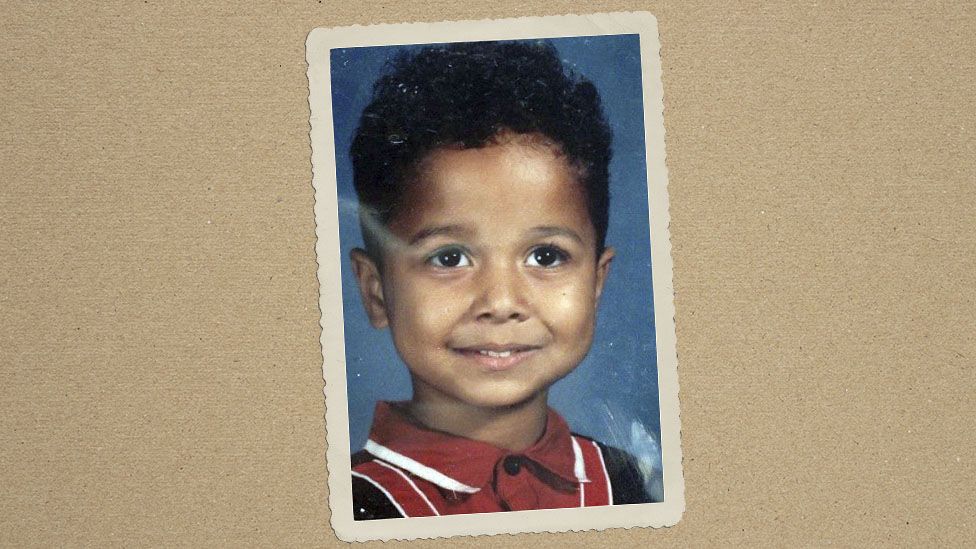
Freddie Figgers was given his first computer at the age of nine. It was old and didn't work but it was the start of a love affair with technology that turned him into an inventor, entrepreneur and telecoms millionaire - a future that few would have predicted after his tough start in life.
"Don't let your circumstances define who you are."
Just one piece of advice 31-year-old entrepreneur Freddie Figgers would like to pass on to others.
When he was eight years old, he asked his father, Nathan, about the circumstances of his birth, and the reply was unforgettable.
Freddie had been found abandoned as a newborn baby next to a dumpster (a large rubbish container) in rural Florida.
Nathan Figgers was a maintenance worker and handyman and Betty Mae Figgers, a farm worker. They lived in Quincy, a rural community of about 8,000 people in North Florida, and were in their 50s when Freddie was born in 1989.
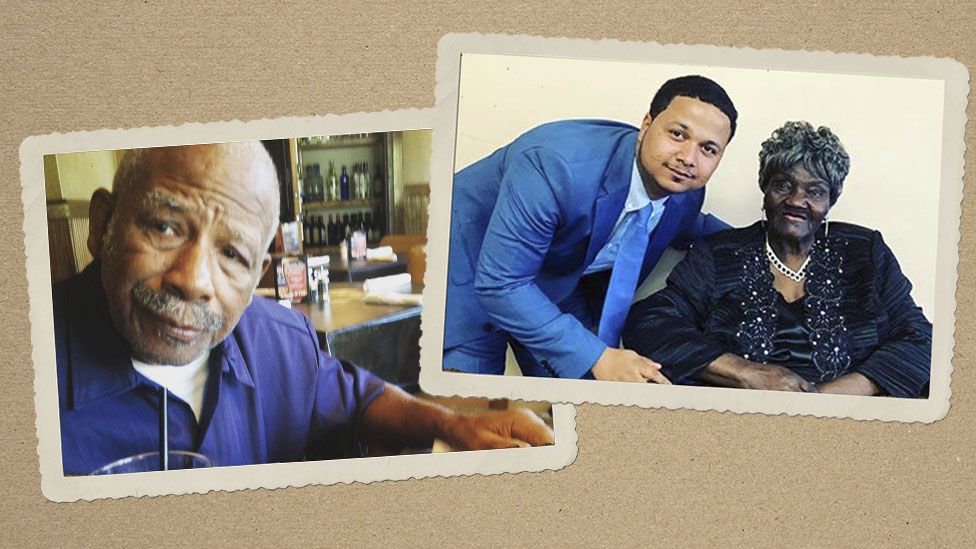
They had already fostered many children, but decided to take Freddie in when he was two days old, and adopt him as their own son. Freddie says they gave him all the love he could ever want - but other children in Quincy could be brutal.
"Kids used to bully me and call me, 'Dumpster baby,' 'Trash can boy,' 'Nobody wants you,' 'You're dirty,'" he says.
"I remember getting off the school bus sometimes and kids used to just come behind and grab me and throw me in a trash can and laugh at me."
It reached a point where his father would wait for him at the bus stop and walk him home, but the children mocked Nathan too, Freddie remembers, "saying, 'Ha ha, look at the old man with the cane.'"
So far as Freddie was concerned, Nathan and Betty Mae were heroes, and great role models.
"I saw my father always helping people, stopping on the side of the road helping strangers, feeding the homeless," he says. "He was an incredible man, and for them to take me in and raise me, that's the man I want to be like."
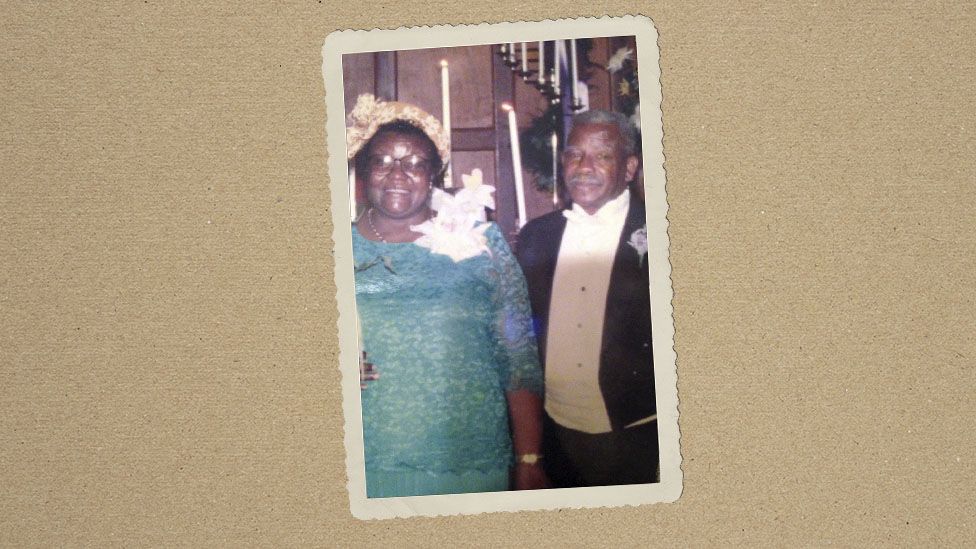
At weekends Freddie and Nathan would drive around "dumpster diving" - looking for useful things that had been thrown away by their owners. Freddie particularly had his eye out for a computer.
"It's an old saying, 'One man's trash is another man's treasure,'" says Freddie, "and I was always fascinated by computers. I always wanted a Gateway computer, but at that time we couldn't afford one."
Finally, one day when Freddie was nine, they went to a second-hand shop called Goodwill, where they came across a broken Macintosh computer.
"We persuaded the sales associate," says Freddie, "and he said, 'Hey, I'll give it to you for $24,' (£17), so we took the computer home and I was just so ecstatic."

He was already fond of tinkering with the collection of radios, alarm clocks or VCRs that Nathan had accumulated, and the broken Mac now became the focus of his attention.
"When I got it home and it wouldn't come on, I took the computer apart," says Freddie.
"As I was looking in it I saw capacitors that were broken. I had soldering guns there and I had radios and alarm clocks, so I took parts out of my father's radio alarm clock and I soldered them into the circuit board."
After about 50 attempts, he says, the computer finally switched on - and at this moment Freddie says he knew that he wanted to spend his life working with technology.
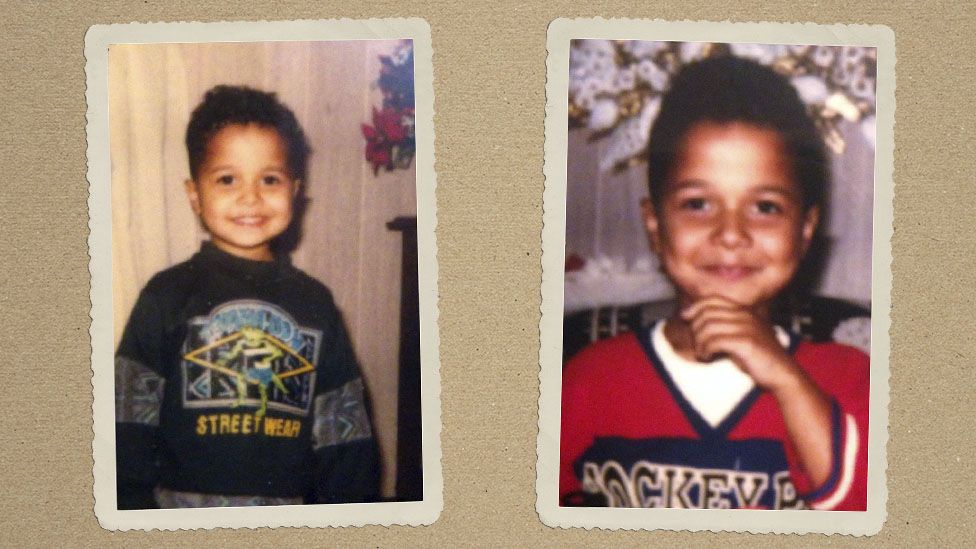
"That computer took away all of the pain of getting bullied," he says.
Whenever he was being picked on at school, he says he was always thinking, "I can't wait to get home to play with my computer."
He was 12 when his skills became noticed by others. At an after-school club, while other children were playing in the playground, Freddie set to work repairing broken computers in the school's computer lab.
"If the hard drive was corrupt I would swap it out. If it needed more memory I would add more RAM. If it needed a power supply, I would switch it out," he says.
The director of the after-school programme was Quincy's mayor and when she saw that he was bringing broken computers back to life, she asked him to come to the city hall with his parents.
"When we get to city hall, she shows me all of these computers in the back, oh gosh, maybe 100 of them stacked up, and she says, 'I need these computers repaired.'"
From then on, Freddie spent time every day after school mending this pile of computers, for $12 (£9) an hour.
"It wasn't even really about the money," he says. "I had an opportunity to do something that I loved to do and it was just so fun to me."
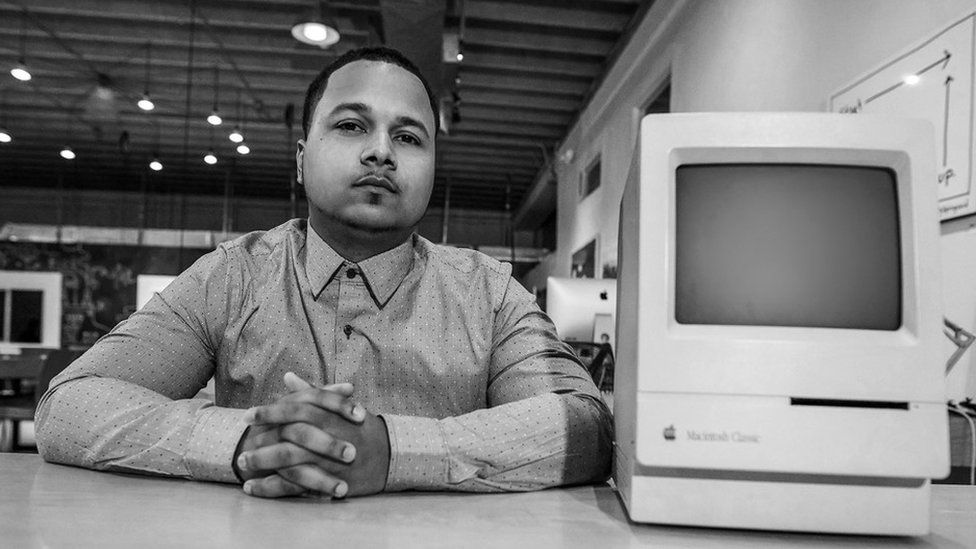 IMAGE SOURCE,FREDDIE FIGGERS
IMAGE SOURCE,FREDDIE FIGGERSA couple of years later, a coding opportunity arose. Quincy needed a system to check the city's water pressure gauges, and a company had quoted $600,000 (£432,500) to develop a computer program.
Freddie remembers that the city manager called out, "Hey, Freddie's a computer dork, he could probably help with this."
"So I said, 'Sir, listen, if you give me an opportunity, I could build the same program. So he gave me that opportunity and I built that program exactly to the specifications that they needed. I didn't get paid $600,000, I got my regular pay cheque and went home."
It was a crucial turning point in Freddie's life. He was only 15, but he now decided to leave school and start up his own computing business - much to his parent's dismay.
"They believed in education, work, retirement, and I wanted to break that chain, I wanted to do something different," he says.
Freddie's business was going from strength to strength when a couple of years later, Nathan started rapidly developing Alzheimer's disease.
One disturbing symptom was that he would wake up in the night and re-enact things he had seen on television earlier in the evening. This led to what Freddie calls "the most traumatising thing that ever happened to me".
Money is nothing but a tool, and I'm going to do everything in my power to try to make the world a better place before I leave it
"It was about two o'clock one morning, and my father used to like this old western called Gunsmoke, and he came into my bedroom and he thought he was [the main character] Matt Dillon. He had a rifle in his hand and he told me… 'I'm going to need you to get out of town.'"
Freddie says there was a "bit of a tussle", but he got the gun out of his father's hand, took him back to bed and tucked him in.
When he woke up in the morning, however, Nathan was gone.
This was another symptom of his Alzheimer's and it had happened before. Sometimes he would forget to get fully dressed before wandering off, though he always put on his shoes.
This prompted Freddie's first profitable invention.
"So I got my dad's shoes, I cut the sole of the shoe open, I built the circuit board and placed it inside of the shoe with a 90 megahertz speaker, a microphone and a wide area network card," says Freddie.
"I integrated that with my laptop - this was before Apple maps or Google maps - and I integrated that through the TomTom, Garmin platform.
"My father could actually wander off and I could press a button on my laptop and say, 'Hey Dad, where are you?' I would come in as a loudspeaker on his shoe, and he would say, 'Fred, I don't know where I am!'"
Freddie could then trace his whereabouts via the GPS tracker and go and fetch him. He says he had to do this about eight times.
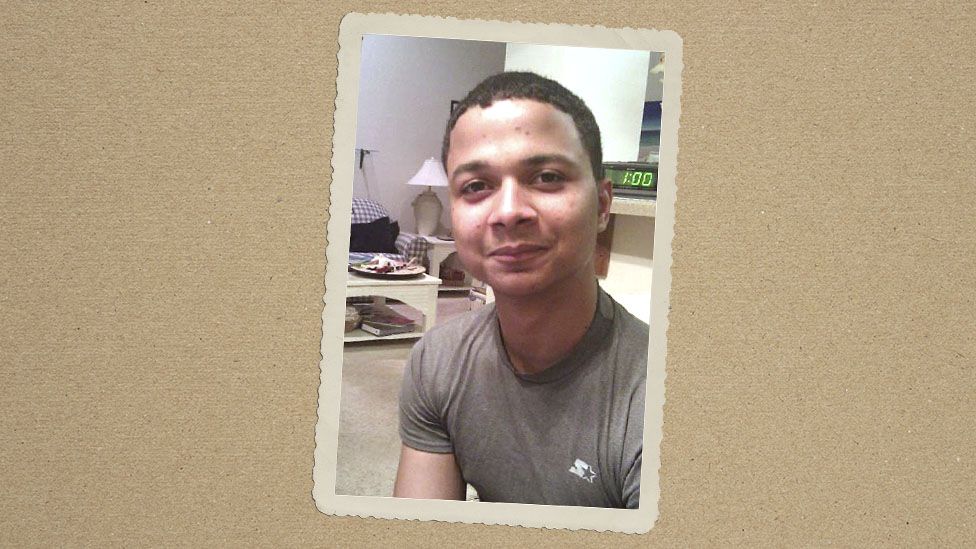
When Nathan's condition deteriorated further, some family members wanted him to go into a nursing home, but Freddie refused. Instead he took his father with him to business meetings.
"He didn't abandon me, so I wasn't going to abandon him," Freddie says.
When he visited potential clients, he would leave Nathan in the back seat of the car with the air conditioning on, the radio playing and a lock on the steering wheel.
"One time I was in a meeting and I looked out the window and... oh my gosh, my dad had let the back window down and climbed out," says Freddie. "So I was in panic mode and it was embarrassing, but I was like, 'Hey, I have to go.'"
Freddie ran out of the meeting and was relieved to find his father sitting in a nearby car park.
Freddie was 24 when Nathan died, aged 81, in January 2014.
"It honestly broke me," says Freddie, "because all I ever wanted to do was make my dad happy."
Freddie had sold his shoe tracker invention for $2.2m (£1.6m) and had been waiting for the funds to clear. Nathan had always wanted to own a 1993 Ford pick-up truck and a fishing boat but now that Freddie could afford to buy them, it was too late.
"That really opened my eyes and taught me that money is nothing but a tool, and I'm going to do everything in my power to try to make the world a better place before I leave it," says Freddie.
"Knowing my father, he wasn't a rich man at all, but he [made an impact on] so many people's lives and I want to just do right by everyone I meet and help everyone I can."
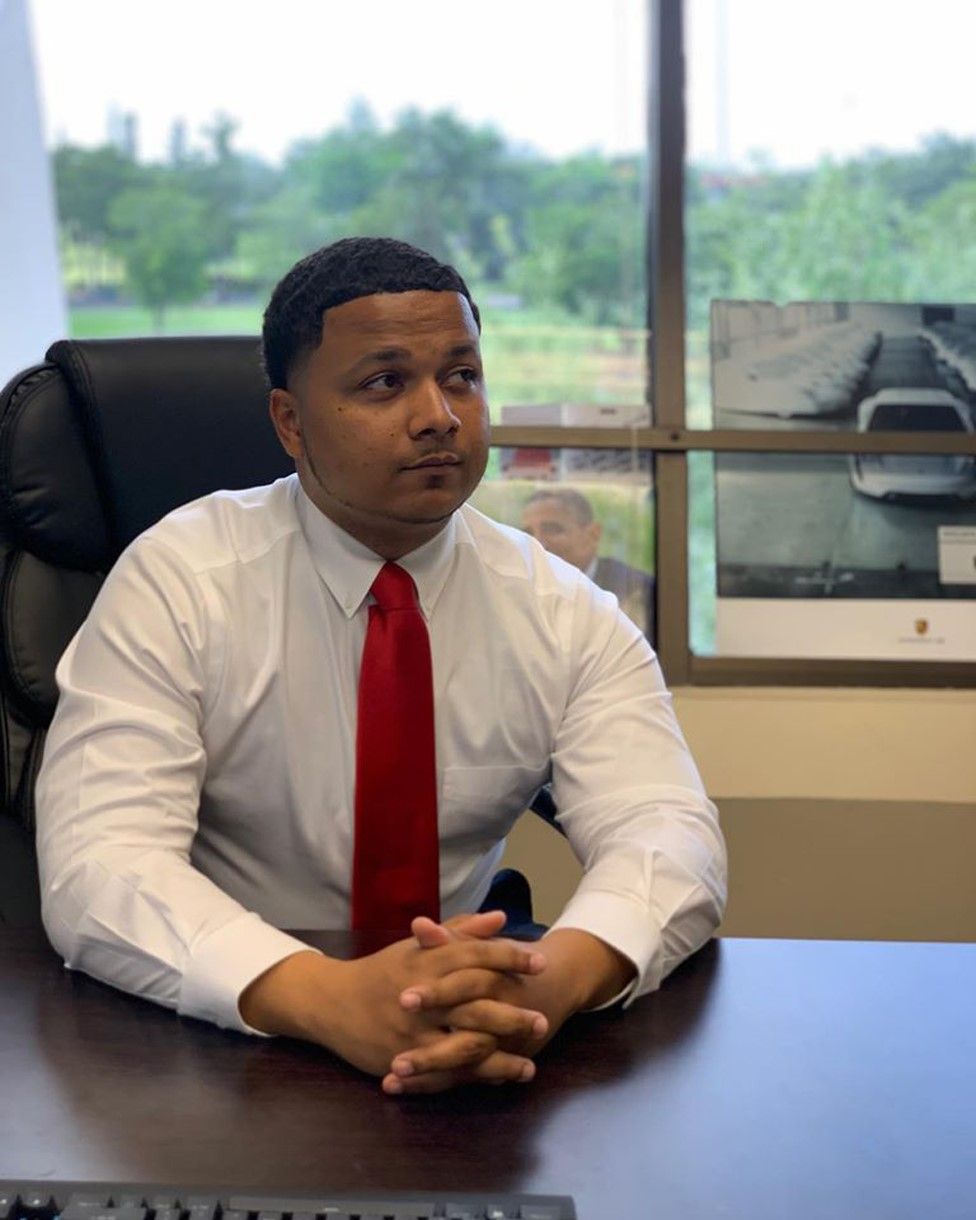 IMAGE SOURCE,FREDDIE FIGGERS
IMAGE SOURCE,FREDDIE FIGGERSBy this stage, Freddie had invented another clever device, also inspired by a personal experience - this time a visit to Georgia when he was eight years old, to visit his mother's uncle.
"When we got to his house my mother and father were knocking on the front door and he wouldn't come to the door," says Freddie. "So my father said, 'Hey Fred, can you climb through the window and open the front door?'"
Freddie got inside, unlocked the door. He could see his relative sitting in a chair by the fireplace and thought everything was fine.
"My dad walked up to him and I remember these words - my dad called my mum and he said, 'Betty Mae, he's dead.'"
Freddie's relative had fallen into a diabetic coma and died.
"When you think about somebody with diabetes, when they check their blood sugar they have to write it down and take a log of it, and in the case of my mother's uncle, even if he wrote it down, for the rural area that he lived in, there was no-one to keep an account of that," Freddie says.
So at the age of 22, Freddie built a smart glucometer that instantly shares a person's blood sugar level with their closest relative and adds the readings to their electronic health record, which a doctor can view. If a person's blood sugar level is abnormal, it sends out an amber alert notification as a warning.
But Freddie had also begun work on a bigger project. He was aware that many parts of rural America had no access to the 2G or 3G network, and in Quincy people were still using dial-up internet at the time, with its distinctive symphony of crackly white noise and high pitched ringing.
He wanted to bring up-to-date communications to these rural areas and in 2008 made the first of many applications for an FCC (Federal Communications Commission) licence to start his own telecoms company.
"I had to petition to show that the bigger telecom carriers are not going to come in and invest their infrastructure into a rural area with populations of less than 1,000," he says.
It wasn't easy. In fact, he says, it took 394 attempts, and cost a huge amount of money. But in 2011, at the age of 21, Freddie became the youngest telecoms operator in the US. According to NBC News, Figgers Communication remains the only black-owned telecommunications company in the country.
In the early days Freddie did most of the work himself - from laying the concrete for his first mobile phone tower, to installing fibre optic cables.

He started out providing services in rural areas of north Florida and southern Georgia, not far from Quincy, and the company has steadily grown. In 2014, Freddie launched a smartphone, the Figgers F1, with a device that detects motion and switches to "safe mode" above 10mph, preventing people from texting while driving. The Figgers F3, which went on sale in 2019, contains a chip designed to enable wireless charging whenever the phone is within five metres of a "super base charger" - a device that has been awaiting approval by the FCC.
The marketing of the F3 caused controversy, with some bloggers arguing that not all of the first model's features were as up-to-date as they said they had been led to believe. Freddie told the BBC: "Our goal is to provide honesty and transparency while we provide quality and advanced products at an affordable price."
Freddie's mother, 83, has now also begun to develop Alzheimer's. He says she's very proud of what he has achieved, and realises that the glucometer, which might have saved her uncle's life, is "something special".
Freddie married Natlie Figgers, an attorney, in 2015, and they have a little girl. As well as his businesses, he runs a foundation that invests in education and healthcare projects and helps disadvantaged children and families. Recent schemes have included donating bicycles to children in foster care, and PPE to people on the frontline of the coronavirus pandemic.
Freddie says the most important advice he would give his little girl about life would be to "never give up, no matter how cold the world may look," and try to make a positive impact on the life of every person you encounter. It's a message Freddie's father and number one supporter, Nathan, would have entirely agreed with.

No comments:
Post a Comment